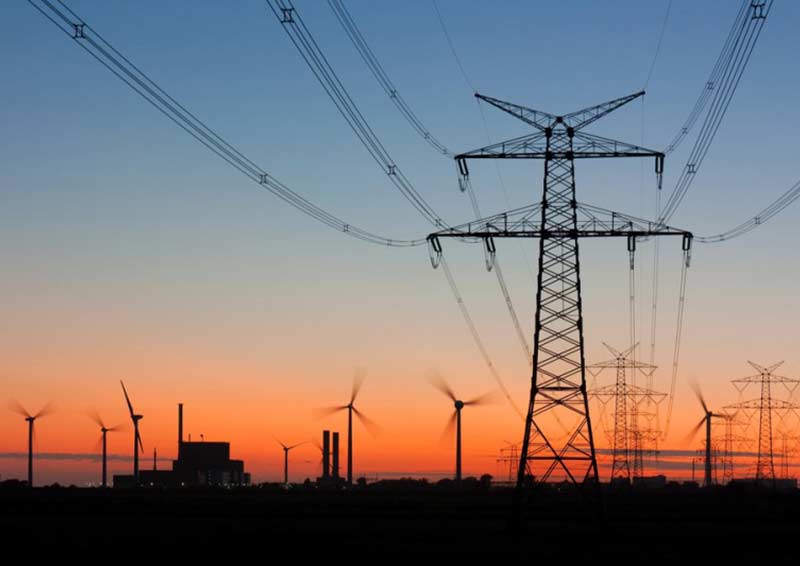Municipal energy - briefing sheet
In February 2017, the Institution of Civil Engineers (ICE) published a briefing sheet focusing on municipal energy transmission, retailing, and legislation, associated issues and the role of local authorities in energy distribution.
Councils are increasingly taking a lead role in the municipalisation of energy by implementing innovative energy schemes to reduce costs, provide value for money, generate income and address fuel poverty.
The briefing paper provides an overview of some of the issues associated with municipal energy and focuses on the UK, with its unique history relating to energy transmission, retailing and legislation.
The transmission of electricity is not a straightforward process and the transmission network can become constrained by a number of factors such as voltage issues, thermal issues, fault levels, power quality and reverse power flow. The situation is complicated by energy now also being distributed locally and entering the grid at a variety of different levels and at different scales.
Some of these network constraints are being addressed through the evolution of smart grids which employ communications, innovative products and services together with intelligent monitoring and control technologies. The timescale for and cost of grid connections are a major issue for businesses.
However, the difficulty of obtaining a grid connection has led to the creation of innovative solutions. One such solution for The Museum of Liverpool - which essentially is located on an island, cut off from the mainland by water, docks and a canal - was to create a tri-generation energy centre that provides heat, electricity and cooling.
The briefing paper provides an introduction to the role local authorities have played with regard to the distribution of energy and their current interests in this agenda around both infrastructure and energy retailing.
Many councils such as Peterborough, Nottingham and Liverpool are using innovative solutions and developing renewable energy alternatives to fossil fuels. By doing this, they are delivering value for money for local council tax-payers, generating income and addressing fuel poverty through reduced energy bills for residents.
The document provides information on:
- Generation and transmission.
- Grid connections.
- Utility companies.
- Municipal energy companies.
- Other sources of renewable energy.
- Balancing and trading.
- Drivers for change.
- Demand and storage.
It also contains links to case studies including:
To download the briefing sheet, go here.
This article was originally published on 15 Feb 2017 by ICE. It was written by Rabinder Phull.
--The Institution of Civil Engineers
[edit] Related articles on Designing Buildings Wiki
- A technical guide to district heating (FB 72).
- Articles by ICE on Designing Buildings Wiki.
- Big growth in district heating markets - now and on the horizon.
- Combined heat and power.
- Community energy network.
- District energy networks.
- DC electricity networks.
- Heat sharing network.
- National heat map.
- The Future of Electricity in Domestic Buildings.
Featured articles and news
Reform of the fire engineering profession
Fire Engineers Advisory Panel: Authoritative Statement, reactions and next steps.
Restoration and renewal of the Palace of Westminster
A complex project of cultural significance from full decant to EMI, opportunities and a potential a way forward.
Apprenticeships and the responsibility we share
Perspectives from the CIOB President as National Apprentice Week comes to a close.
The first line of defence against rain, wind and snow.
Building Safety recap January, 2026
What we missed at the end of last year, and at the start of this...
National Apprenticeship Week 2026, 9-15 Feb
Shining a light on the positive impacts for businesses, their apprentices and the wider economy alike.
Applications and benefits of acoustic flooring
From commercial to retail.
From solid to sprung and ribbed to raised.
Strengthening industry collaboration in Hong Kong
Hong Kong Institute of Construction and The Chartered Institute of Building sign Memorandum of Understanding.
A detailed description from the experts at Cornish Lime.
IHBC planning for growth with corporate plan development
Grow with the Institute by volunteering and CP25 consultation.
Connecting ambition and action for designers and specifiers.
Electrical skills gap deepens as apprenticeship starts fall despite surging demand says ECA.
Built environment bodies deepen joint action on EDI
B.E.Inclusive initiative agree next phase of joint equity, diversity and inclusion (EDI) action plan.
Recognising culture as key to sustainable economic growth
Creative UK Provocation paper: Culture as Growth Infrastructure.
Futurebuild and UK Construction Week London Unite
Creating the UK’s Built Environment Super Event and over 25 other key partnerships.
Welsh and Scottish 2026 elections
Manifestos for the built environment for upcoming same May day elections.
Advancing BIM education with a competency framework
“We don’t need people who can just draw in 3D. We need people who can think in data.”

























